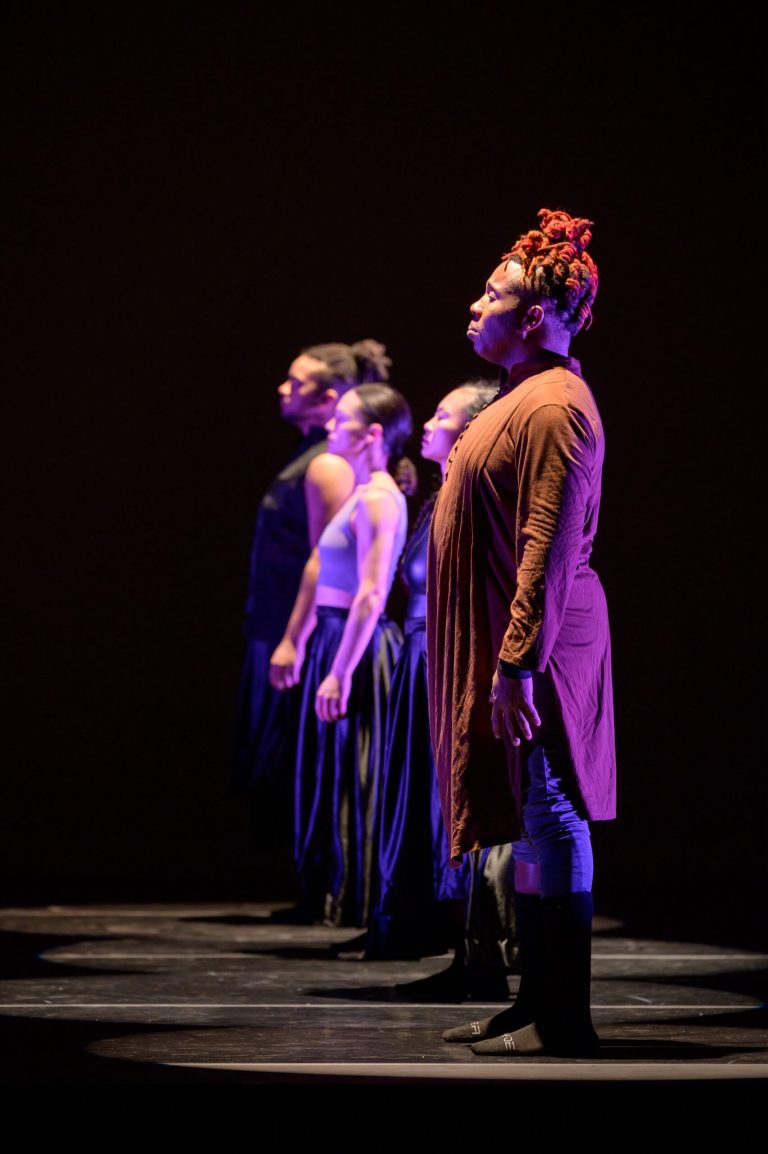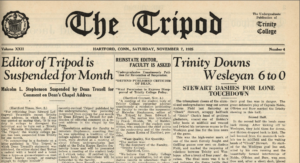Brendan W. Clark ’21
Editor-in-Chief
Trinity has removed 15 students from its Hartford campus for the remainder of the semester “as a result of significant COVID-19 conduct violations,” according to an email from Chief of Staff to the President Jason Rojas Friday afternoon. Trinity also reported two new cases Friday, for a cumulative total of four positive, currently active cases this week.
The move—the first time Trinity has explicitly addressed the removal of students—comes as the campus moves past an outbreak that infected as many as 56 students earlier this month. Rojas indicated Friday that the events were tied to “possible violations that occurred last weekend” and that the administrative decisions were the result of “an investigation to determine the validity of the reports we received.”
The College detailed two incidents: in one, “14 students who live in campus housing visited a local bar.” In another, one student violated the “COVID-19 guest policy.” Both incidents occurred while the College operated at an “orange” alert level in the preceding weeks as a result of the outbreak.
Rojas indicated that, as punishment, “all of these students will complete the semester remotely and will not be allowed on campus for the remainder of the semester.” It was not immediately clear if the College would refund room and board fees for these students. On Monday, Rojas declined to confirm to the Tripod if refunds would be made and also declined to note how the administration had learned of the violations.
Other institutions, such as Northeastern in a publicized case in September, declined to return tuition and room and board funds and did not permit students to complete the semester.
Trinity has previously refused to reveal the number of students removed from campus for violations of COVID-19 guidelines, stressing that the administration “feel[s] it’s best to acknowledge the actions of students who are showing care and concerns for each other” rather than “focus[ing] on some mistakes that have been made.”
Rojas told the Tripod that these “were serious and willful violations of college policy” and stressed that it is “possible to hold individuals accountable while still acknowledging the overall efforts of our campus community to adhere to the community contract.” He also indicated that the College’s response to Tripod questions “reflect our position that the administration has the capacity and authority to exercise judgment in decision making without having to validate to the Tripod every position we take.”
DiChristina also indicated that the College generally provides a notice of violation and that students are removed after receiving a second notice. That same process was followed here, Rojas added Monday, telling the Tripod that the “process outlined at the start of the semester was followed here; it provides for warnings for minor or first violations and other sanctions, including immediate removal from campus, for violations that demonstrate disregard for the safety of others.”
While the shift in notice is new for the institution, the College also indicated after the most recent outbreak that it did not intend to change its practices, citing work with Hartford Healthcare that assess and informs their practices, which “helped mitigate the spread of the virus over the past two weeks.”
These incidents demonstrated “a disregard for the expectations set in our student community contract and COVID policies.” Trinity previously declined to enforce certain aspects of College reopening policy, including a prohibition on the use of outdoor socialization during the first several weeks of the semester.
The College also reiterated Friday its requirement that “students may not travel from campus (including locally) for nonessential reasons,” though Vice President for Student Success and Enrollment Management Joe DiChristina has previously told the Tripod that the restrictions “don’t apply to personal travel” and has previously acknowledged the lack of a “legal basis” for the policy. DiChristina also indicated over the summer that the College would not regulate the usage of private automobiles, adding that they would not “regulate use” and that students may register their automobile “just like any other semester.”








+ There are no comments
Add yours